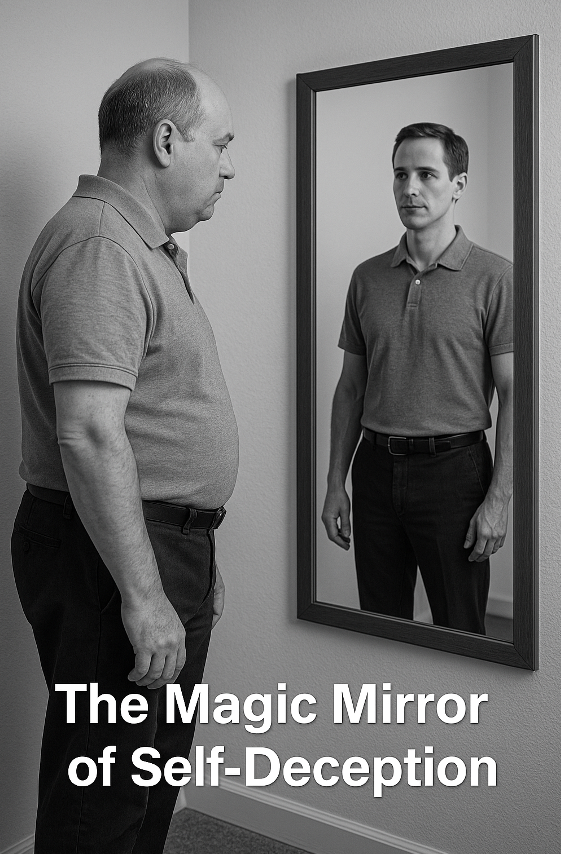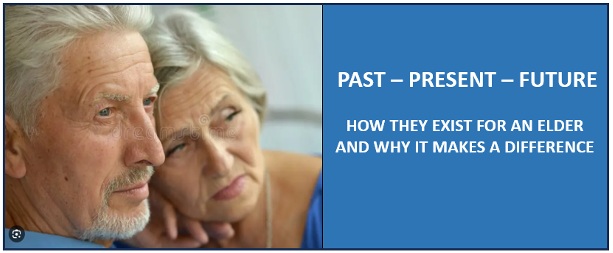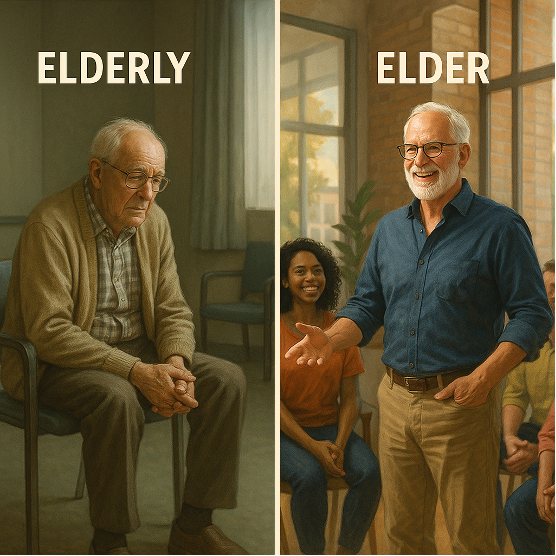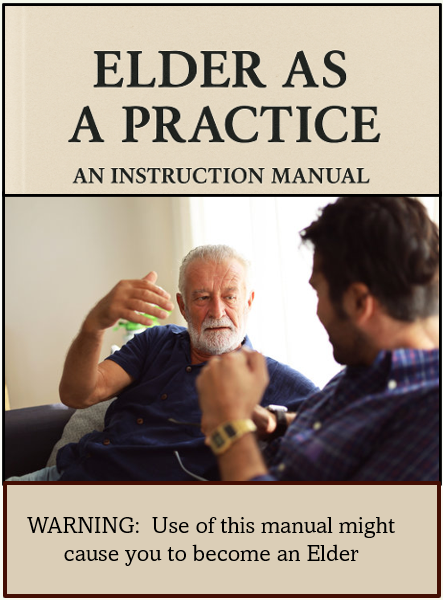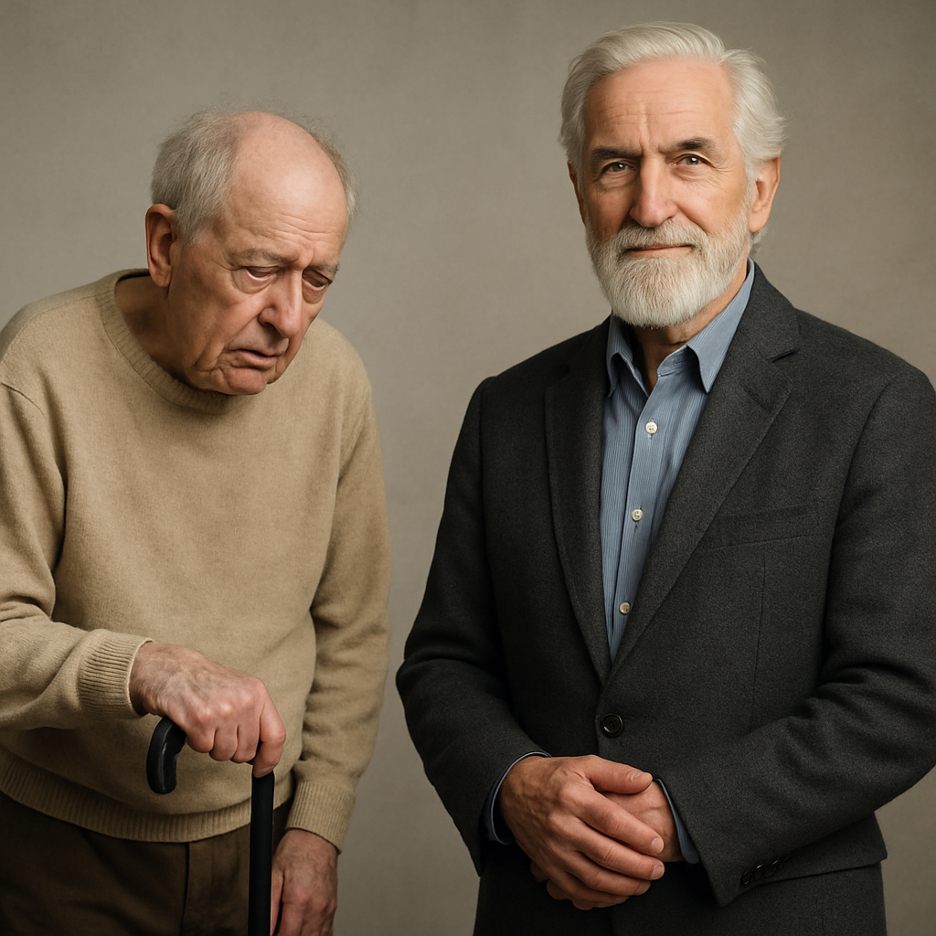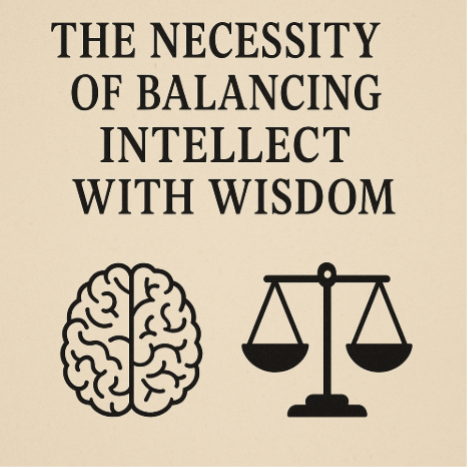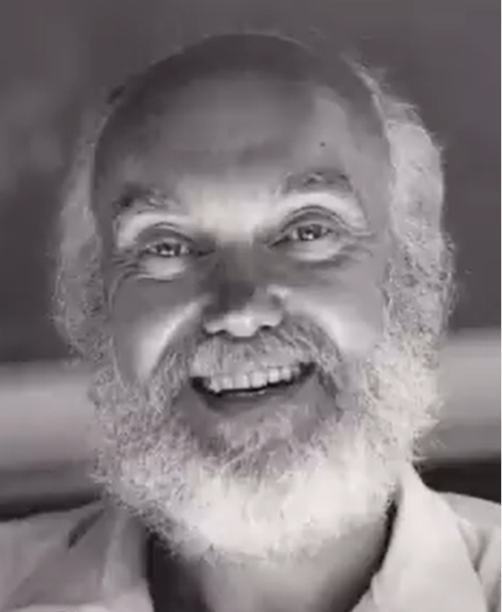THE MINDFULLY IMPAIRED - THE DILEMMA OF THE SUCCESSFUL LATE-AGED PROFESSIONAL
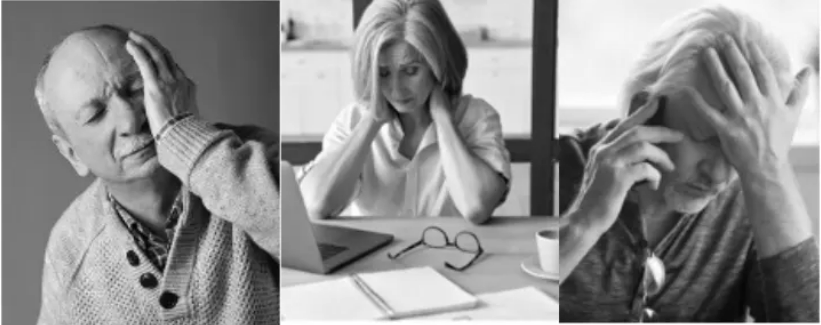
THE MINDFULLY IMPAIRED - THE DILEMMA OF THE SUCCESSFUL LATE-AGED PROFESSIONAL
In our Western culture, materialistic success is paramount. To achieve this success, professionals develop and train their minds to think in a particular way that allows them to achieve this success - rational, strategic, tactical, competitive, driven by you or me, win-lose thinking.
But there is a high cost of developing this success-driven mind. The thinking that brought them material success and ego gratification often generate suffering once their professional careers end.
The success-driven mind does not allow professionals to be in the present moment. Being in the present moment, or the "here and now," means you are aware and mindful of what is happening at the very moment. Your mind is not distracted by ruminations on the past or worries about the future but centered on the here and now.
Albert Einstein's theory of relativity suggests that time is not absolute; it is something people experience relative to the world around them. You experience time in three ways: past, present, and future. But in this context, the present is either past- or future-based, not stand-alone. And the thinking mind of professionals is trained to think in all three domains, disallowing them to be in the unattached pure present moment.
The ability to drop into the unattached present moment delivers significant benefits, especially in late aging – physically, mentally, and spiritually. However, dropping into the pure present moment requires mindfulness.
Mindfulness is conscious awareness of one's emotions, thoughts, and experiences in the unattached present moment. In our experience, to override the success-driven mind to develop mindfulness requires an immersive engagement. The professional's mind, so highly tuned to operate in all three time zones – past, attached present, and future – strongly opposes being in the present timeless moment.
Recent scientific studies suggest that the memories that symbolize your past are unreliable. Mindfulness traditions suggest that anytime a person dwells on the past or future, they are nurturing an illusion. Because the past is history and the future is uncertain, the single present moment is all that exists.
The future is unpredictable. While people can talk about probabilities, there are only so many variables to guarantee accuracy. For example, the person worrying about a critical meeting in the morning cannot predict a broken water main, traffic incidents, or other disruptive possibilities.
The present moment is simply what a person is experiencing at a given point in space and time. The present moment happens now, not before or after. The present moment occurs here, not over there or somewhere else.
Present-moment awareness is a practice in which someone focuses intently on what is occurring, including a host of sensations like actions, feelings, and experiences. Present-moment awareness is a central tenet of mindfulness.
Mindfulness has been described as the tendency to be highly aware of one's internal and external experiences in an accepting, nonjudgmental stance toward those experiences.
CULTIVATING PRESENT-MOMENT AWARENESS
The professional attendees at our retreats initially struggle to be in the present moment. They are always surprised to realize how often they ruminate on the past or worry about the future.
At our retreats, we use meditation to develop their present-moment awareness. We use several meditation methods, and participants discover which method works best for them. For example, transcendental and Zen Buddhist traditions focus on breath and silence, Hindu meditation works with a repeated mantra or chanting to focus on the moment, and Christian and Jewish contemplative traditions use scriptural prayer as a means of focus. All methods are utilized at our retreats.
Breath Awareness
Paying attention to their breath is one technique that helps people focus on the present moment's sensations. Breathing is an unconscious action regulated by the nervous system, and although people are constantly breathing, they hardly notice it. Deep-breathing techniques help promote calmness and direct awareness toward the body, away from the mind.
Body Scan
A body scan, a common component of yoga and other mindfulness practices, is the intentional observation of the feelings and sensations of the body. A body scan can be guided or conducted on one's own. Usually, in yoga, the person begins by lying on their back with their arms extended at their sides; this is Savasana or corpse pose. Next, they sweep through the body, focusing their attention wholly on one region at a time, often starting with the toes and moving upward, then relaxing each muscle.
Mindful Walking
In Zen Buddhism, kinhin is the practice of walking meditation. In this meditation style, the participant focuses on the feeling of walking. They walk at a slow and relaxed pace and notice the transition as the foot slowly rolls from heel to toe. They enjoy feelings of peace, acceptance, and joy as they focus on the sensation of walking, displacing anxieties and concerns.
Scriptural Prayer
Praying scripture is simply taking a passage, verse, or concept in scripture and using it for specific prayers for your life or community. So instead of forming a prayer from your heart and mind, you pray what's already spoken.
Being in Nature
Simply being in nature has been known to improve people's moods. However, the benefits only increase when people practice mindfulness and awareness of the present while in nature. For example, in a 2019 study, one group was assigned to walk indoors, another to walk outdoors, and a third to walk outdoors and practice mindfulness found that though all the outdoor walkers experienced some benefits of nature, those trained in mindful awareness enjoyed the experience the most. In addition to improved mood, they experienced a greater awareness of their surroundings, a stronger connection to nature, and less negative mood and feelings.
The Contemporary Elder Retreat engages all these practices and establishes a support structure after the retreat to practice mindfulness to access present-moment awareness.
Here are the reported benefits of being able to access the present-moment awareness consciously,
- Increased happiness, contentment, and quality of life.
- More significant sensations of pleasure.
- Less negative mood and emotions.
- Improved mental clarity.
- Better immune function.
- Enhanced ability to empathize with others.
- Increased concentration
- Decreased anxiety.
- Better emotional management.
- Increased self-regulation.
- Increased values-consistent behavior.
- Increased ability to cope with daily stressors.
- Enhanced ability to deal with aging and end-of-life.
- Less judgment, evaluation, and condemnation of self and others.
"The only way to reach true peace and fulfillment is through being completely present in each moment you experience. Unfortunately, a part of our mind, called the ego, derails us by ruminating on the past, speculating about the future, clinging to our painful experiences, and insisting that we will be happy and fulfilled if we can achieve our material goals. Inner peace and happiness can't be found in anything external but must be found within by being present." - Eckhart Tolle.
A primary aim of the Contemporary Elder Retreat is to develop late-age professionals' ability to consciously and actively access present-moment awareness through mindfulness methods and practices.
The next Contemporary Elder Retreat, September 2023, Red Mountain Resort, www.requestingwisdom.com/retreat
The body content of your post goes here. To edit this text, click on it and delete this default text and start typing your own or paste your own from a different source.
